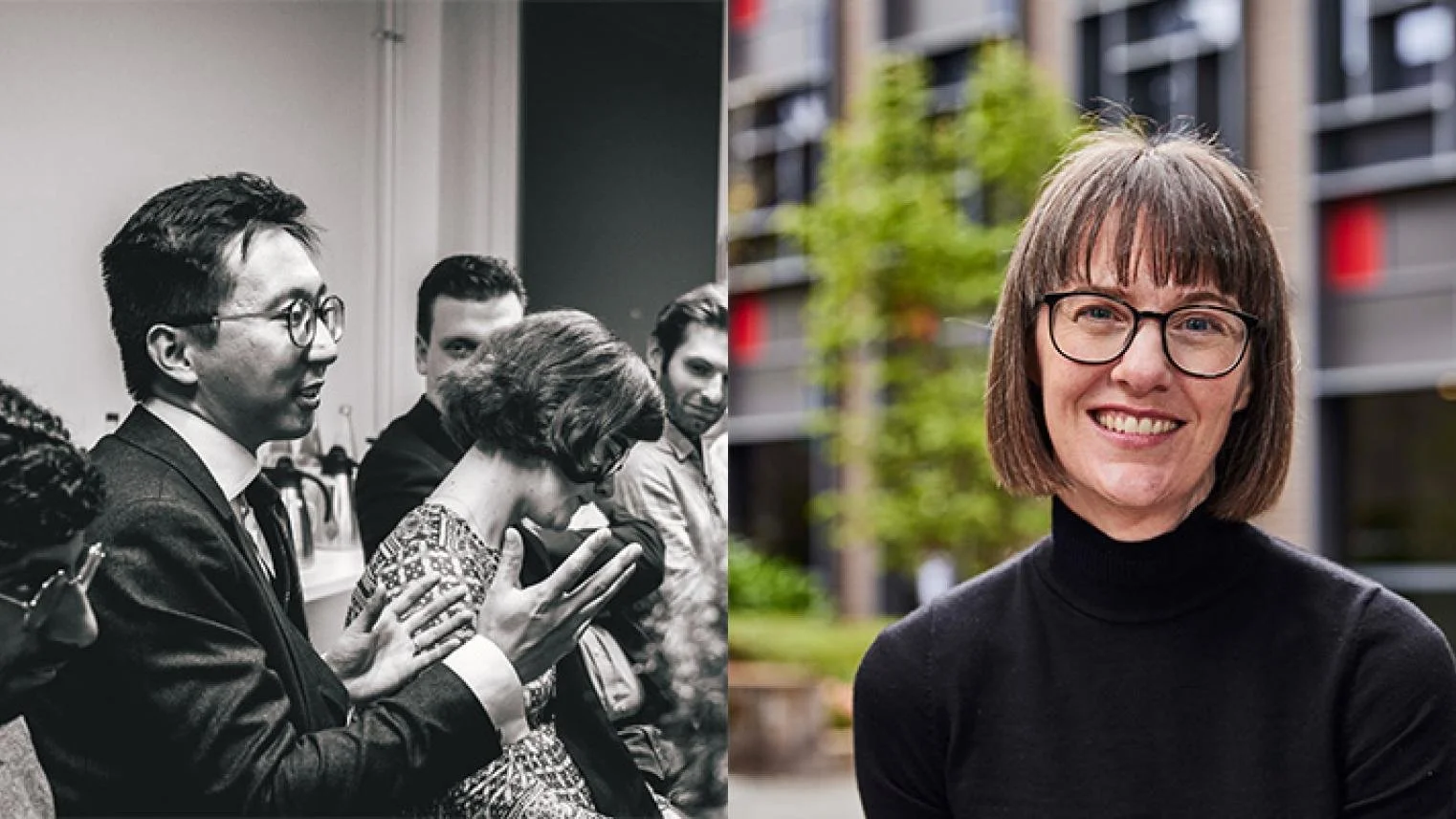Launching the China, Development and International Order Seminar Series
Dr Xiaoyu Lu (left) and Professor Amy King (right)
It has been terrific to start 2024 with a series of seminars on the theme of China, Development and International Order. The China, Development and International Order Seminar Series brings together scholars examining how China is shaping ideas and practices of development, both historically and in the contemporary period, and drawing on a range of different disciplinary perspectives.
In February, we launched the Series with a seminar by Dr Xiaoyu Lu (Peking University) discussing his recent book, Norms, Storytelling and International Institutions in China: The Imperative to Narrate. Drawing on three years of ethnographic research at the United Nations Development Programme in China, Lu explored the everyday practices of norm diffusion in emerging powers, and highlighted the central role of storytelling in translating and contesting normative scripts.
Dr Xiaoyu Lu presenting his seminar
Our second seminar featured research team members, Amy King and Wenting He, discussing their new co-authored paper, The Resilience of Self-Reliance in China: Autonomy, Interdependence, and Order-Shaping. The idea of ‘self-reliance’ (zili gengsheng) has endured in Chinese political discourse for nearly a century. While ‘self-reliance’ is frequently misinterpreted as economic isolation or autarky, King and He instead demonstrated that ‘self-reliance’ has always been comprised of three interlocking pillars: autonomy, interdependence, and order-shaping. This tripartite structure, replete with its internal contradictions, has enabled Chinese leaders from the Republican era to Xi Jinping to usefully deploy the idea of ‘self-reliance’.
In our third seminar, Dr Denghua Zhang (ANU) examined the nexus between development and influence in his paper entitled, Testing China’s Influence Overseas: The Case of Pacific Island Countries. While it is well understood that China and Western powers are competing for influence in the Global South, scholars have focused far less on how developing countries perceive China’s influence. Based on extensive fieldwork across a host of Pacific Island countries, Zhang explored local perceptions of China, the opportunities and challenges faced by China, and the implications for traditional powers and Pacific states in the context of growing geostrategic competition.
Our next seminar will take place on Friday 10 May, featuring Dr Koji Hirata (Monash University), discussing how the Soviet occupation of Northeast China (Manchuria) and Nationalist China’s industrial reconstruction efforts in the years following World War II shaped Chinese Communist Party’s socialist industrialization after 1948. Hirata will reflect on how this moment of post-war industrialisation shapes our understanding of development, international order, and developmental states in world history.
Please follow the links above to register for upcoming seminars, or to listen to recordings of past seminars.
We are grateful to the ANU’s Coral Bell School of Asia Pacific Affairs, the Westpac Scholars Trust, and Strategic and Defence Studies Centre at the ANU for their support in running the China, Development and International Order Seminar Series.
Follow my Twitter Page for the latest updates!



